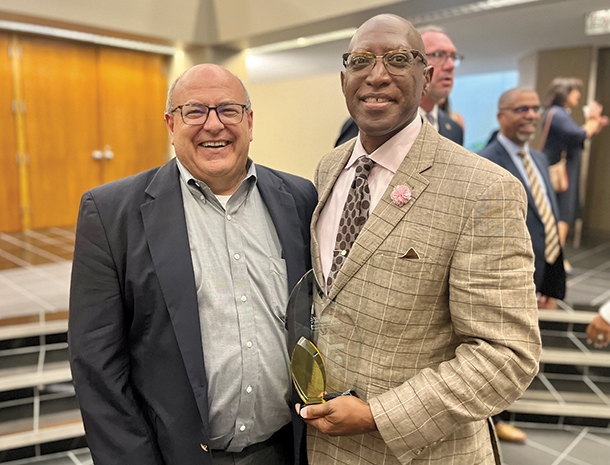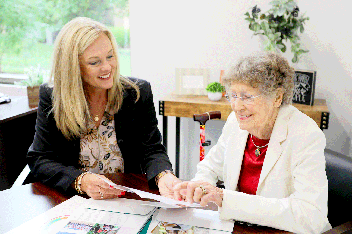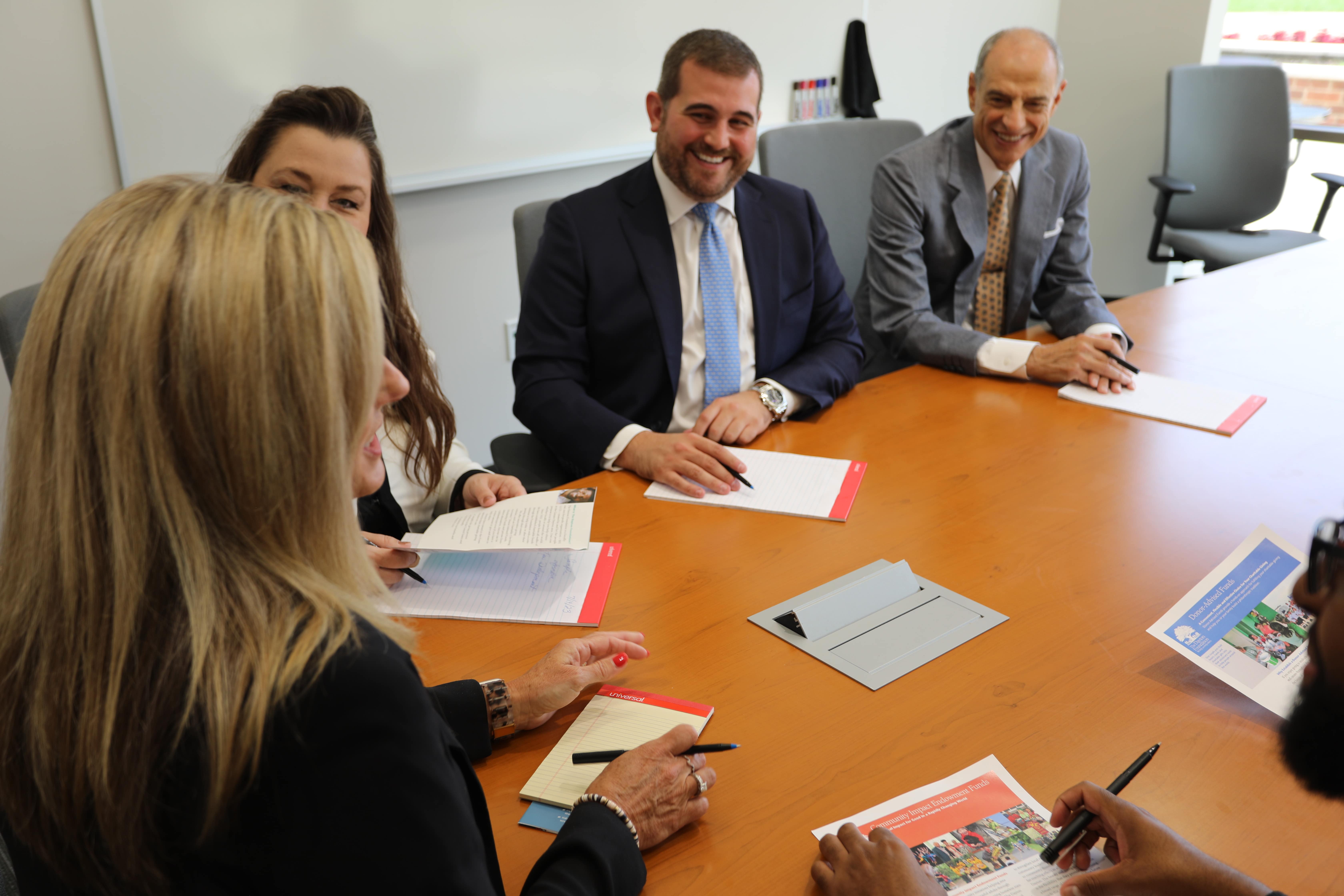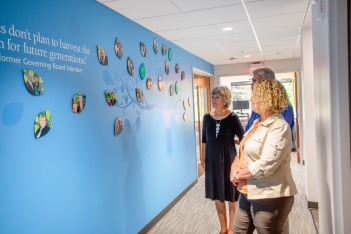Eliminating disparities and advancing equity are two critical elements in building a community where individuals of all backgrounds can thrive. No one understands this concept better than Michael Carter, senior advisor to the president and chief diversity officer for Sinclair Community College, who has become a leading advocate for diversity, equity and inclusion awareness and education. Throughout his career and volunteer work, and as an African-American Community Fund donor, Michael has embodied the description of a change agent in moving Greater Dayton toward a more diverse and inclusive region. I sat down with him recently to discuss the community’s biggest hurdles in achieving DEI and how individuals and organizations can get involved in the fight to further DEI efforts in and out of the workplace.

Mike Parks with Michael Carter at the Dayton Business Journal’s 2022 Diversity in Business Awards event, when Michael was honored with the John E. Moore Sr. Lifetime Achievement Award for Racial Equity
What do you see as the community’s greatest challenges regarding equity and inclusion?
I love the quote by Mark Twain, “It ain’t what you don’t know that gets you in trouble, it’s what you know for sure that just ain’t so.” One of our greatest challenges is the belief that it is impossible to love this great country and still look inward with a critical eye. Our history is complicated, one with amazing accomplishments and shameful cruelty. We must accept and learn from both. Another challenge is so many of us have a difficult time “declaring against interest.”
Our history is complicated, one with amazing accomplishments and shameful cruelty. We must accept and learn from both.
– Michael Carter
This means having the empathy to believe that all of us, regardless of our zip code, race, religion, gender or sexual orientation, should have equal and equitable access. Over the last seven years, I have been intimately involved in this work and seen great progress. However, the challenge for all of us is to not become satisfied with that progress or become frustrated or intimidated by those who push back against racial and social justice. The work of diversity, equity and inclusion is a journey, not a destination.
You have facilitated more than 300 discussions centered on DEI for more than 10,000 participants. How have these discussions elevated the conversation on DEI in Greater Dayton?
We believe in inviting people in, not pushing them out of the conversation. Our work in this effort has provided individuals with the opportunity to engage in a wide variety of DEI topics they probably never would have had without the platform we provided. The key is having the willingness to learn and listen. There often is an inclination to not hear other people’s reality, but when one does hear with an open mind it allows meaningful conversations to occur. Many people are hearing things for the very first time or things that historically have been hidden or covered up. This can be uncomfortable, yet, at the same time, very liberating. All of our events and discussions are open not only to Sinclair students, faculty and staff, but also to the entire community and even the country.
What resources are available for local organizations and individuals who want to get involved and educate themselves about DEI?
Please check out www.sinclair.edu/diversity for the DEI calendar of events. We also provide downloadable resources, links to TED Talks, webinars and videos, and a wealth of other resources. In addition, there is a Regional Equity Calendar supported by Miami Valley Regional Planning Commission that provides information on equity training and activities in the community. If you’re looking for a hands-on experience, Sinclair’s Diversity Office opened an exhibit last September titled Our American Journey: The Black Experience in America. It’s a powerful sampling of books, artifacts and visuals, which has sparked a lot of conversation among the nearly 1,000 visitors who have experienced it.
How does prioritizing DEI work help organizations and their employees succeed?
Although we work in environments where people come from many different backgrounds, religions, political views and social vantage points, we must be welcoming and create a climate that is accepting and inclusive. Leadership must be unwavering in its strong support of DEI efforts in the face of those who may oppose those efforts. Failure to do so is a betrayal to those who have been historically marginalized and underrepresented. Our companies and organizations have a wonderful opportunity to lead the way when it comes to creating cultures of acceptance and understanding. Let’s be mindful that those who need our support most in this space are rarely vocal about needing that support. Lifting them up makes our organizations stronger and creates a more inclusive space for all employees to succeed.








